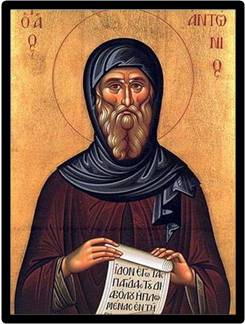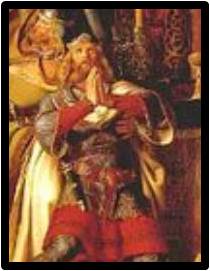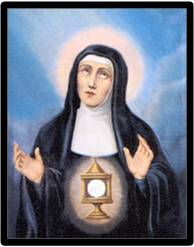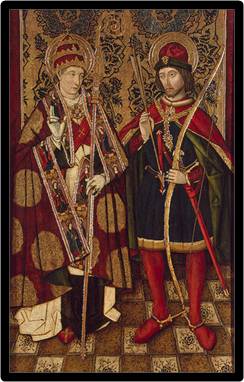JANUARY 17 - ST. ANTHONY OF EGYPT

St. Anthony was born at Heracleus in Egypt. When he was twenty years old, his parents died. They left him a large estate and placed him in charge of the care of his young sister. Anthony felt overwhelmed and turned to God in prayer.
He soon became more and more aware of the power of God in his life. About six months later, he heard this quotation of Jesus from the Gospel: “Go, sell what you own and give the money to the poor, and you will have treasure in heaven” (Mark 10:21).
He took the words as a personal message in answer to his prayer for guidance. He made sure that his sister completed her education, then sold his house, furniture, and the land he owned and gave the money to the poor and to the people who needed it.
Anthony’s sister joined a group of women living a life of prayer and contemplation. Anthony decided to become a hermit. He begged an elderly hermit to teach him the spiritual life. Anthony also visited other hermits so he could learn each one’s most outstanding virtue.
Then at the age of thirty-five he moved alone to the desert, living in an abandoned fort and began his own life of prayer and penance alone with God.
By the time he was fifty-five, people found out where he was and began coming to him for healing and for spiritual counseling. Finally, Anthony built two monasteries on the Nile, one at Pispir and one at Arsinoe. The monks and people who lived around him supported themselves by making and selling baskets and brushes.
Many people heard of him and came to him looking for advice. He would give them practical advice such as: “The devil is afraid of us when we pray and make sacrifices. He is also afraid when we are humble and good. He is especially afraid when we love Jesus very much. He runs away when we make the Sign of the Cross.”
St. Anthony visited Paul the hermit shortly before he died and helped dig a grave to bury him. He felt enriched by the example of Paul’s holy life.
Anthony died after a long, prayerful life in 356. He was 105. St. Athanasius wrote a well known biography of St. Anthony of Egypt.



